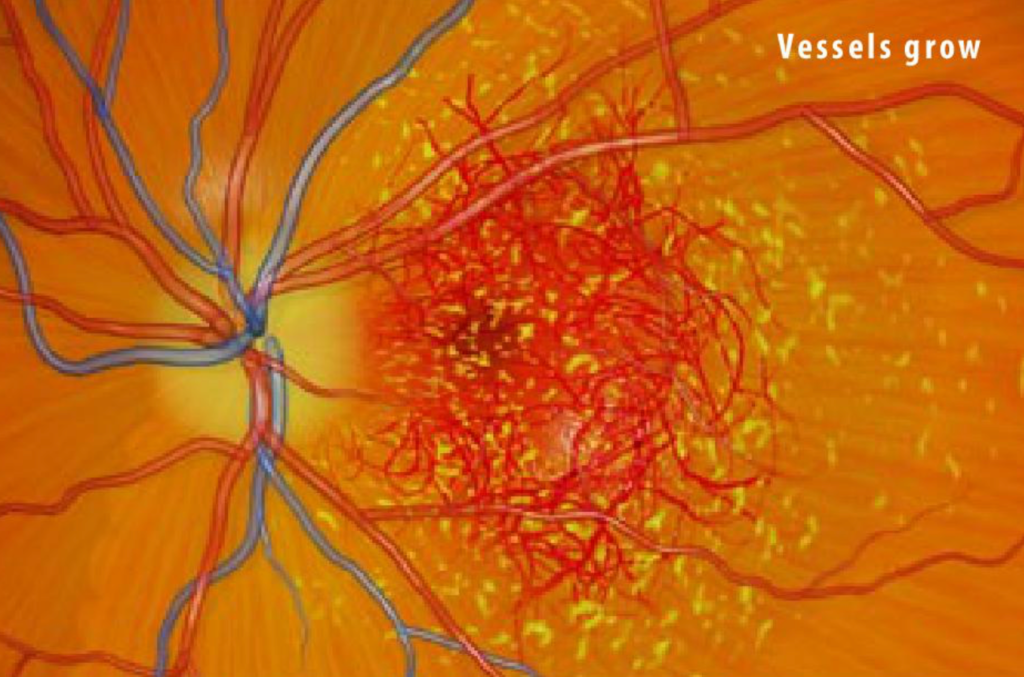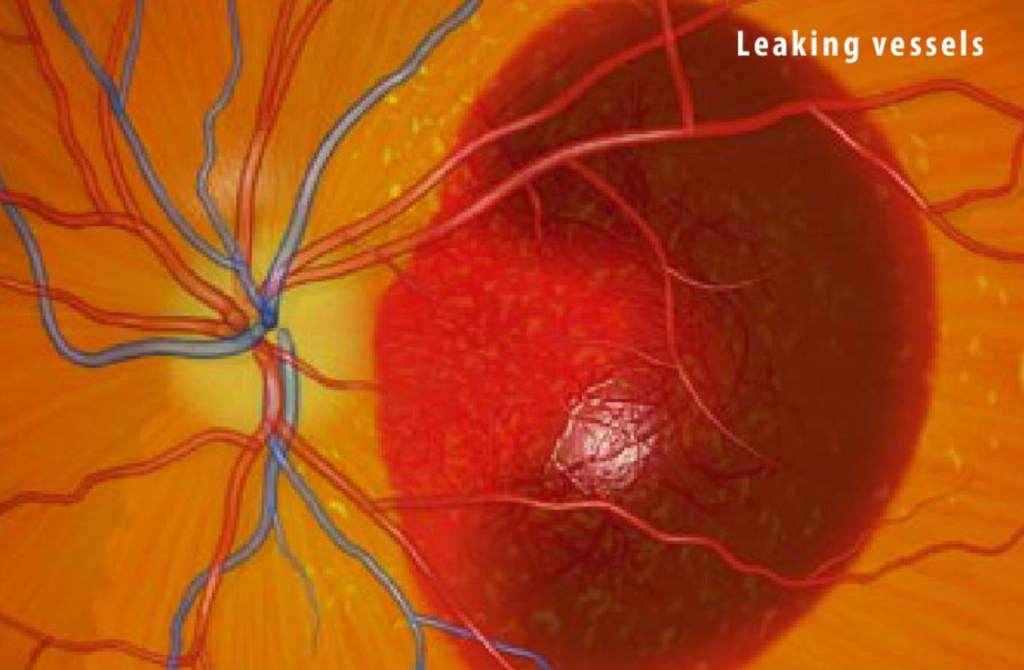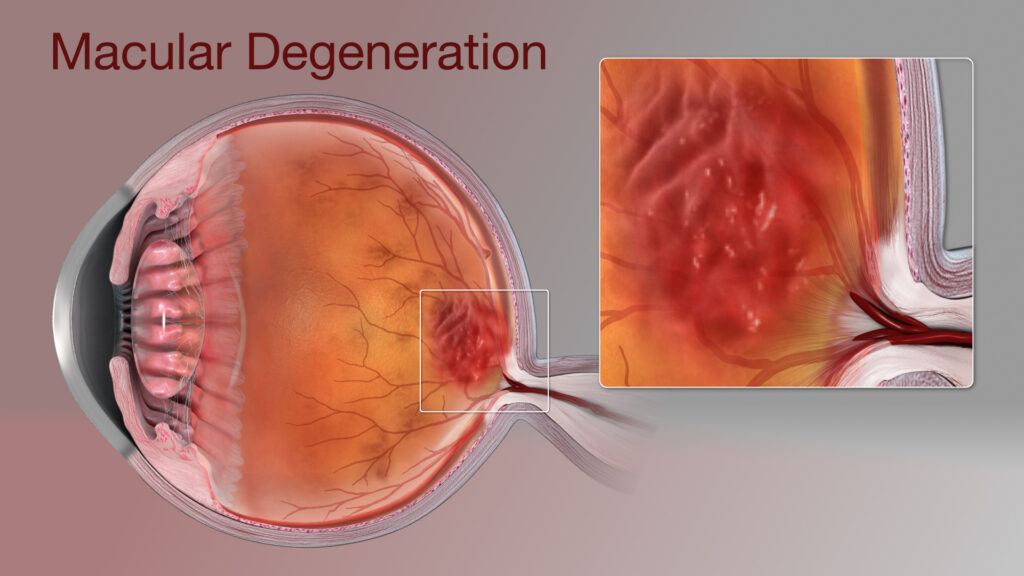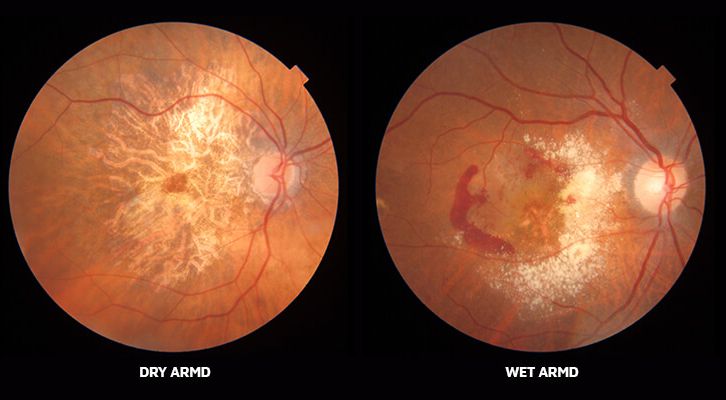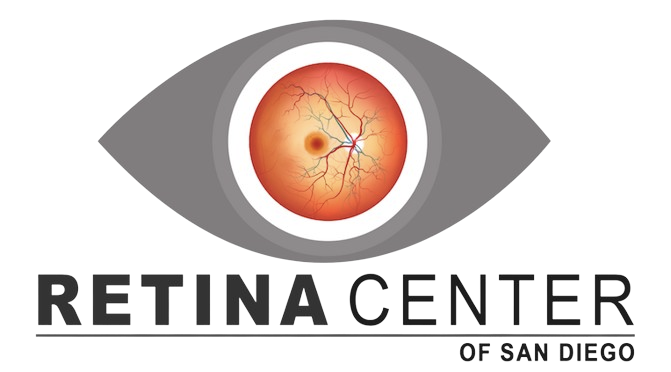Wet Macular Degeneration
What is Wet Macular Degeneration?
Wet macular degeneration, also known as neovascular or exudative macular degeneration, is a chronic eye disease characterized by abnormal blood vessel growth underneath the macula, a part of the retina responsible for central vision. These abnormal blood vessels leak fluid and blood, leading to damage of the macula and rapid loss of central vision. Treatment for wet macular degeneration often involves therapies aimed at stopping the growth of abnormal blood vessels and reducing their leakage.
Treatments for Wet Macular Degeneration
Anti-VEGF injections: Vascular endothelial growth factor (VEGF) is a protein that promotes the growth of abnormal blood vessels in the eye. Anti-VEGF drugs, are injected into the eye to inhibit the activity of VEGF and reduce the growth of new blood vessels. Examples of anti-VEGF drugs include, aflibercept (Eylea), and bevacizumab (Avastin).
Treatment for wet macular degeneration is most effective when started early, so it’s important for individuals at risk to undergo regular eye exams to detect any changes in their vision. While these treatments can help slow the progression of the disease and preserve remaining vision, they may not be able to restore vision that has already been lost.

